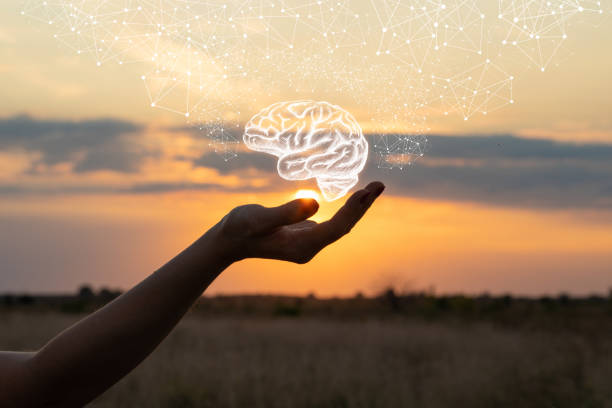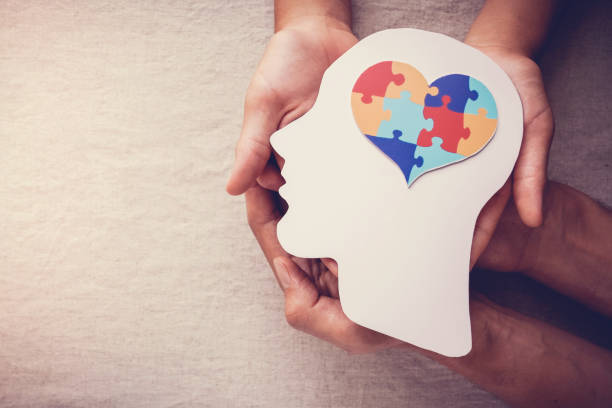Types Of Mental Disorders
In all nations of the globe, the burden of mental diseases continues to rise, posing serious health risks as well as huge social, human rights, and economic ramifications.
Depression
Depression is a widespread mental disorder that is also one of the leading causes of disability across the world. Depression affects an estimated 264 million individuals worldwide. 1 Women are more likely to be impacted than males.
Sadness, lack of interest or pleasure, feelings of guilt or low self-worth, interrupted sleep or food, weariness, and impaired concentration are all symptoms of depression. People who are depressed may also experience a variety of bodily ailments that have no obvious physical reason. Depression can be chronic or recurring, limiting people's ability to perform at work or school and cope with day-to-day living. Depression can lead to suicide in its most extreme form.
Both children (e.g., through protection and psychological support following physical and sexual abuse) and adults have been demonstrated to benefit from prevention programs (e.g. through psychosocial assistance after disasters and conflicts).
There are additional therapies that are successful. Talking treatments, such as cognitive behavior therapy or psychotherapy, can effectively cure mild to severe depression. Antidepressants can be an effective treatment for mild to moderate depression, however they should not be used as the first line of treatment for mild depression. They should not be used to treat depression in children, and they should not be used as the first line of therapy in teenagers, who should be treated with caution.
Psychosocial components of depression management should involve recognizing stressors, such as financial issues, employment challenges, or physical or mental abuse, as well as sources of support, such as family and friends. It's critical to keep social networks and activities active or reactivate them.
Bipolar
Around 45 million people worldwide are affected by this disorder1. It usually includes both manic and depressed episodes, with intervals of normal mood in between. Manic episodes are characterized by a heightened or irritated mood, excessive activity, quick speech, increased self-esteem, and a reduced desire for sleep. Bipolar disorder can also be diagnosed in those who have manic periods but don't have depressed episodes.
Effective therapies for the acute phase of bipolar illness and the prevention of recurrence are available. These are mood-stabilizing medications. The importance of psychosocial assistance in therapy cannot be overstated.
Schizophrenia
Schizophrenia is a serious mental illness that affects 20 million individuals globally1. Disturbances in thinking, perception, emotions, language, sense of self, and behavior define psychoses, including schizophrenia. Hallucinations (hearing, seeing, or feeling things that aren't there) and delusions are common psychotic experiences (fixed false beliefs or suspicions that are firmly held even when there is evidence to the contrary). People with the disease may find it difficult to work or study regularly.
Lack of access to health and social services can be caused by stigma and prejudice. In addition, persons with psychosis are more likely to be subjected to human rights breaches, such as long-term institutionalization.
Schizophrenia is most commonly diagnosed in late adolescence or early adulthood. Medicines and emotional assistance are effective treatments. Affected persons can live productive lives and integrate into society with the right therapy and social assistance. Facilitation of assisted living, supported housing, and supported employment can serve as a foundation for persons with serious mental illnesses, such as schizophrenia, to achieve a variety of rehabilitation goals, since they often struggle to find or keep a place to live and work.
Dementia
Dementia affects around 50 million individuals worldwide. Dementia is a chronic or progressive disease in which cognitive function (i.e. the capacity to process thoughts) deteriorates beyond what would be expected with normal aging. Memory, cognition, orientation, understanding, computation, learning capacity, language, and judgment are all affected. Deterioration in emotional regulation, social behavior, or motivation is frequently associated with, and occasionally preceded by, cognitive impairment.
Dementia is caused by a range of brain disorders and accidents, including Alzheimer's disease and stroke.
While there is presently no cure for dementia or a way to slow its progression, several therapies are in various phases of scientific studies. However, there is much that can be done to help and improve the lives of persons with dementia, as well as their caregivers and relatives.
Autism And Other Developmental Difficulties
The phrase "developmental disorder" refers to both intellectual impairment and widespread developmental problems, such as autism. Developmental disorders normally begin in childhood but can last into age, impairing or delaying functions associated to the growth of the central nervous system. Rather of the remissions and relapses that define many mental diseases, they usually take a constant course.
Intellectual disability is defined as a loss of abilities in a variety of developmental domains, including cognitive functioning and adaptive behavior. Lower IQ reduces one's capacity to adjust to life's everyday challenges.
Impaired social behavior, communication, and language, as well as a restricted range of interests and activities that are both unique to the individual and repeated, are all symptoms of pervasive developmental disorders like autism. Infancy and early childhood are common places for developmental problems to begin. Some people with these diseases have some level of intellectual handicap.
The importance of family engagement in the care of persons with developmental disabilities cannot be overstated. Finding out what causes both misery and well-being in afflicted persons, as well as what surroundings are most favorable to improved learning, is an essential part of treatment. With regular times for eating, playing, learning, being with others, and sleeping, daily routines help reduce unneeded stress. Both children and adults with developmental impairments, as well as their jobs, need to be followed up on by health services on a regular basis.
The general public has a responsibility to play in ensuring that individuals with disabilities' rights and needs are met.
Who Is At Risk Of Developing Mental Illnesses?
Individual characteristics such as the ability to manage one's thoughts, emotions, behaviors, and interactions with others are determinants of mental health and mental disorders, as are social, cultural, economic, political, and environmental factors such as national policies, social protection, living standards, working conditions, and community support.
Mental problems are also influenced by stress, heredity, diet, prenatal diseases, and exposure to environmental risks.
Health And Assistance
The burden of mental illnesses has not yet been fully addressed by health systems. As a result, there is a large gap between the demand for therapy and the availability of treatment all over the world. Between 76 percent and 85 percent of persons with mental problems in low- and middle-income nations do not obtain treatment. 2
The low quality of care received by many of those who do obtain therapy adds to the problem.
People with mental illnesses require social support and care in addition to medical assistance. They frequently require assistance in obtaining educational programs that meet their requirements, as well as work and housing that allow them to live and participate in their communities.


